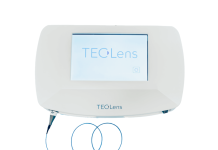GI Dynamics announced the results of a study of its EndoBarrier system that met efficacy and safety endpoints.
Boston-based GI Dynamics designed its EndoBarrier endoscopically delivered device therapy as a non-surgical, alternative treatment for type 2 diabetes and obesity for patients who do not have adequate control of their conditions through their current medication and lifestyle.
According to a news release, data from the study were presented at the annual Digestive Disease Week (DDW) conference last month. Results from the multicenter, randomized, sham-controlled trial of a duodenal jejunal bypass liner (DJBL) for treating type 2 diabetes mellitus were presented by Dr. Christopher C. Thompson, Professor at Harvard Medical School and Director of Endoscopy at Brigham and Women’s Hospital.
The study enrolled patients from 2013 to 2015 and included subjects randomized to DJBL and a sham procedure with moderate-intensity lifestyle intervention. Primary endpoints included safety, defined as an incidence of serious adverse event (SAE)-related early device removal of ≤15%, and efficacy of glycemic control demonstrated by mean change in HbA1c at 12 months with a superiority margin of ≥0.4% HbA1c over sham.
RELATED: Tandem reports positive data for t:slim X2 insulin pump with Control-IQ technology
Analysis demonstrated that the EndoBarrier met both overall glycemic control efficacy and SAE-related device removal safety endpoints while also providing clinically significant weight loss and comorbidity improvement.
GI Dynamics had put a stop to the ENDO trial in 2015 before completing enrollment due to a higher than anticipated incidence of liver abscesses. The company launched a new U.S. FDA investigational device exemption study (STEP-1) in 2019 to study EndoBarrier. It is currently enrolling patients across five sites in the U.S.
“Insulin therapy is associated with poor long-term outcomes in patients with type 2 diabetes mellitus and obesity, and bariatric surgery is effective for glycemic control but is higher risk than medical therapy. EndoBarrier is a less invasive intermediate alternative for this struggling population,” Thompson said in the release. “This novel approach is promising and has the potential to offer patients and clinicians another safe and effective treatment option.”




